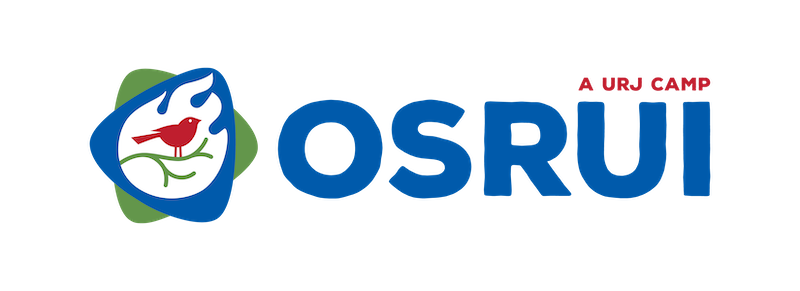By our Tzofim Segel: Cantor Lauren Phillips, Cantor at Congregation Sinai in Milwaukee, WI and Rabbi Andrea Steinberger, Rabbi at the University of Wisconsin-Madison Hillel in Madison, WI
 What do you do when someone pushes ahead of you for food at the Tzofim serving table? Have you ever been embarrassed when you couldn’t climb Etgar (the challenge tower) when other people could? Did you have a time when someone in your tent told everyone something about you, and it wasn’t even true? What did you do?
What do you do when someone pushes ahead of you for food at the Tzofim serving table? Have you ever been embarrassed when you couldn’t climb Etgar (the challenge tower) when other people could? Did you have a time when someone in your tent told everyone something about you, and it wasn’t even true? What did you do?
These are all real conversations we have been having in Kibbutz HaTzofim, a tent unit at OSRUI. In Tzofim, the chanichim (campers) live in close quarters with one another. There are many challenges, and of course, many possibilities for a level of friendship and cooperation that is truly a treasure. We can use Jewish values to teach us lessons in cooperation, friendship and living a life with dignity.
Jewish camping is in many ways synonymous with Jewish values. In Tzofim Gimmel, our Limmud topic involves an in depth explorations of these values, which are called middot in Hebrew.
This summer, the middot we are studying are being introduced by two celebrities – Tzedek Swift (Taylor Swift) and Magen David Trainor (Meghan Trainor), played by our awesome madrichim (counselors).
Being a pop star is hard work – it requires a lot of savlanut (patience) and involves an unfortunate amount of lashon hara (gossip). We also need to be careful lo y’vayesh (not to embarrass them) because of their position in the public eye. These are just the first few middot we have explored this session through the eyes of Tzedek Swift and Magen David Trainor. Others include shmirat haguf (caring for the body), shmirat hateva (caring for nature), and yedidut (friendship).
We began our study of middot by creating several britot (covenants). Each camper created a brit ishit (personal covenant) that declared his or her commitment to incorporating the middot into his/her life at OSRUI. We then grouped together in ohelim (tents) to create a brit ohel and then, finally, as an entire Tzofim keillah (community). Some of the values incorporated into our Brit Kehillah included respecting others, yourself, and your environment, have fun and be nice, and always support your fellow Tzofim campers.
All of our Limmudim (lessons) incorporate active programs. Today we experienced the incredible challenge of how to get an entire group of kids to each pass through a jump rope as two chanichim (campers) swung it. The kids went one-by-one, in pairs, in triplets, cheering each other on, learning to shake it off when someone interrupted the swing and starting again. It was fantastic. The kids were ecstatic to learn that they could show patience for one another and themselves and succeed as a result.
We also learned that in truth, the Jewish people has survived as a result of patience, waiting through Pharaoh’s ten plagues in Egypt until the very right moment of freedom, travelling for forty years in the desert in order to make it to the Promised Land, etc. We also know moments of impatience, as when Moses struck the rock in order to get water or when the Israelites made the golden calf while waiting for Moses to come down from the mountain.
Seeing these children exuberant with their success at being patient, or deep in conversation, listening to one another as they admitted to sometimes feeling embarrassed is the biggest thrill a parent or teacher could experience. It is like experiencing a taste of a future time when the world has no more war, and no more hunger, and people understand one another and support each other because they have learned the importance of middot, of living with Jewish values. OSRUI is the place for this taste of a time to come.
